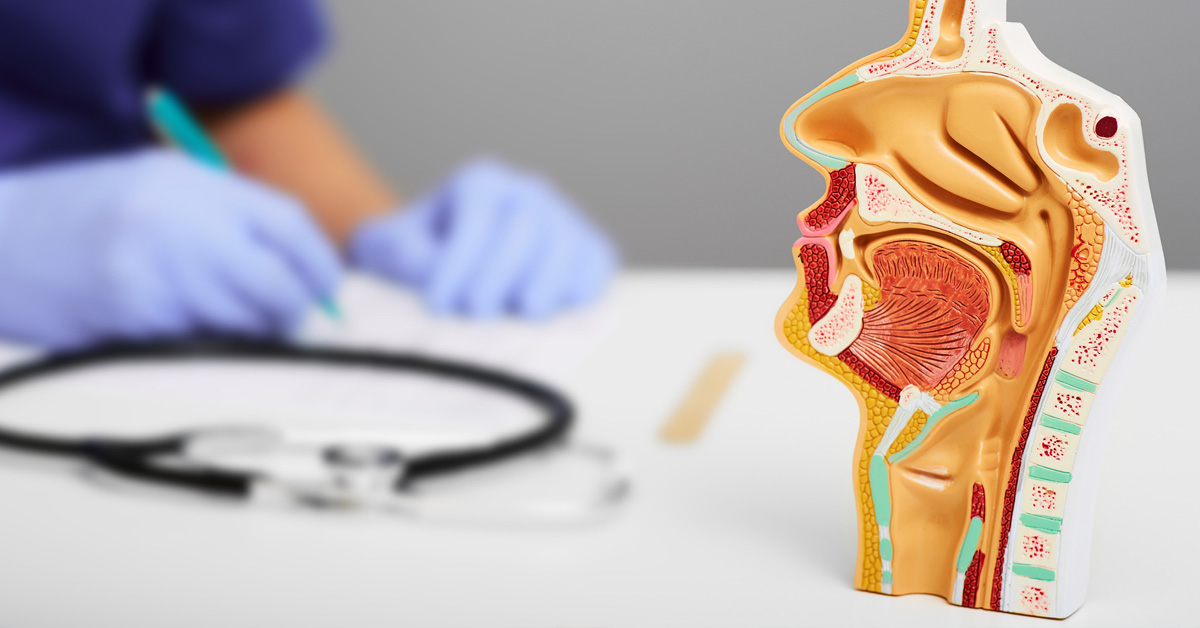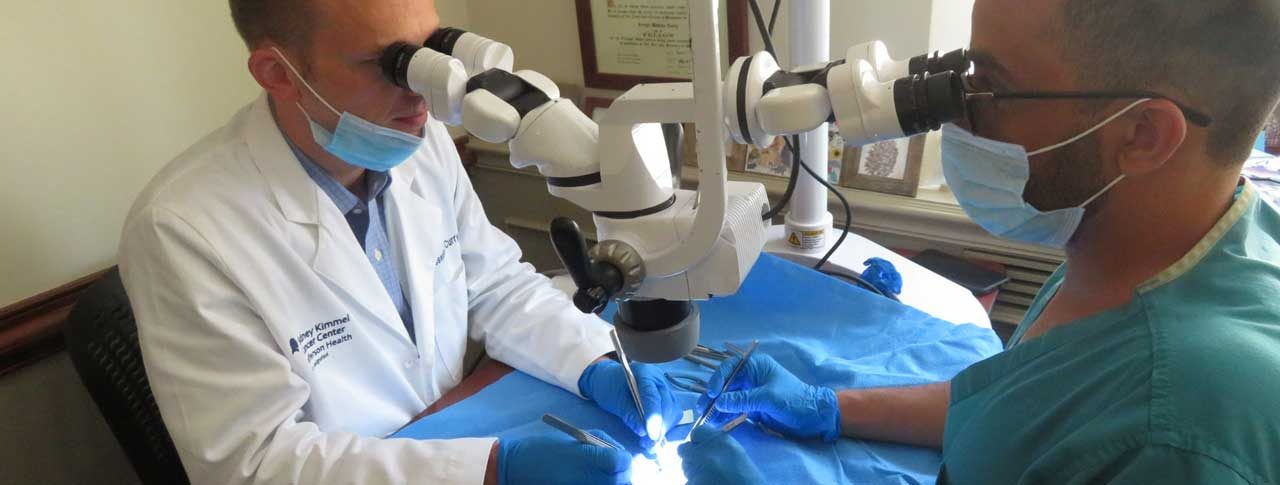Exploring the Field of Otolaryngology: What to Anticipate When You Seek Advice From an ENT
Otolaryngology, commonly described as ENT, incorporates the medical diagnosis and treatment of nose, throat, and ear conditions. For those experiencing relevant issues, consulting an ENT expert can supply clearness and relief. Comprehending what to expect during such appointments is crucial for effective interaction and treatment. This overview will certainly lay out crucial facets of the ENT experience, consisting of common factors for visits and the procedures entailed in diagnosis and therapy.

Understanding Otolaryngology: A Summary
Otolaryngology, usually referred to as ENT (Ear, throat, and nose) medication, is a specific branch of medication that concentrates on the medical diagnosis and therapy of conditions affecting these critical areas of the body. This area includes a variety of disorders, including those pertaining to hearing, equilibrium, respiratory function, and speech. Otolaryngologists are trained to manage both medical and surgical treatments, making use of advanced methods and innovations. Their proficiency extends beyond conventional conditions, attending to issues such as allergies, sinus infections, and hearing loss. In addition, they play an important role in the management of head and neck cancers, offering extensive care tailored to private client requirements. Generally, otolaryngology stays necessary for preserving wellness and lifestyle in afflicted people.
Usual Factors to See an ENT Professional
Numerous people seek the competence of an ENT professional for a range of factors, reflecting the diverse nature of conditions that influence the ear, nose, and throat. Typical issues include persistent sinus problems, which frequently causes consistent nasal blockage and face discomfort. Allergic reactions and their connected signs, such as itching and sneezing, also trigger sees to these experts (ENT Clinic). Hearing loss, whether sudden or steady, is an additional substantial reason for appointment. On top of that, people may look for examination for throat problems, including consistent hoarseness or ingesting problems. Rest apnea, defined by interrupted breathing throughout rest, is regularly attended to by ENT professionals. Each of these conditions highlights the significance of specialized care in taking care of intricate ENT-related health and wellness problems
Preparing for Your ENT Visit
When getting ready for an ENT consultation, it is vital to gather appropriate information and take into consideration any type of details problems. People should put together a detailed medical history, consisting of previous ear, nose, or throat concerns, surgical treatments, and present medicines. Recording signs-- such as seriousness, duration, and regularity-- can provide important understandings for the ENT expert. In addition, individuals must prepare a checklist of concerns they want to ask, making certain that all issues are resolved during the browse through. Bringing along any appropriate clinical records or test results can additionally assist the ENT in understanding the individual's condition. Individuals should validate their appointment information, consisting of day, time, and place, to minimize any final complication. Correct preparation can boost the performance of the assessment and cause better end results.
What to Anticipate Throughout the Consultation
As the appointment begins, the individual can anticipate to engage in a comprehensive conversation with the ENT specialist regarding their symptoms and clinical history. The professional will ask about the duration, frequency, and severity of signs such as hearing loss, nasal blockage, or sore throat. Additionally, the individual's previous clinical problems, drugs, and any kind of appropriate family background will certainly be examined, helping the specialist in forming a complete understanding of the person's health and wellness. The ENT might likewise ask regarding way of life aspects, such as direct exposure to irritants or toxic irritants. This open dialogue establishes a structure for the consultation, ensuring that the individual's issues are dealt with and establishing the phase for any required evaluations or suggestions for therapy.
Diagnostic Tests and Treatments in Otolaryngology
A series of analysis tests and treatments are vital in otolaryngology to properly evaluate and detect conditions affecting the throat, nose, and ear. Usual tests consist of audiometry, which measures hearing function, and tympanometry, evaluating middle ear pressure. Nasal endoscopy allows visualization of the nasal passages and sinuses, while laryngoscopy analyzes the throat and vocal cables. Imaging techniques, such as CT scans and MRIs, offer thorough sights of head and neck structures. Allergic reaction screening might additionally be conducted to recognize triggers for sinus or breathing problems. These analysis tools enable ENT specialists to establish a detailed understanding of people' conditions, making certain customized and efficient management strategies. Proper diagnosis is essential for successful treatment outcomes in otolaryngology.
Treatment Alternatives Offered by ENT Specialists
ENT specialists provide a range of treatment options tailored to attend to certain conditions impacting the ear, nose, and throat. These treatments range from conventional techniques, such as drug and lifestyle alterations, to even more intrusive procedures. Allergic reactions might be managed with antihistamines or immunotherapy, while persistent sinusitis could need nasal corticosteroids or sinus surgery. For hearing loss, ENT specialists often recommend listening devices or surgical interventions like cochlear implants. In instances of throat conditions, options can consist of speech therapy or procedures to eliminate blockages. In addition, they may provide guidance for handling sleep apnea, consisting of using CPAP tools or surgical interventions. Generally, the goal is to boost clients' lifestyle via customized treatment and efficient therapy techniques.
When to Look For Follow-Up Care With an ENT
When to seek follow-up treatment with an ENT professional is essential for handling ongoing symptoms or difficulties related to nose, ear, and throat problems, recognizing. Clients ought to consider scheduling a follow-up appointment if signs continue despite preliminary therapy, such as chronic ear pain, nasal congestion, or throat discomfort. Modifications in hearing, balance problems, or uncommon nasal discharge may also necessitate additional assessment. Furthermore, if an individual experiences negative effects from recommended medications or has undertaken a procedure, follow-up treatment is very important to monitor recovery and attend to any type of issues. Timely consultations can ensure effective monitoring of conditions, prevent possible difficulties, and supply tranquility of mind concerning one's health and get more info wellness. Seeking follow-up care advertises aggressive health and wellness administration in otolaryngology.
Often Asked Inquiries

What Certifications Should I Seek in an ENT Specialist?
When looking for an ENT expert, one ought to seek board accreditation, appropriate experience, and solid patient evaluations. Furthermore, reliable interaction skills and a compassionate strategy can considerably enhance the total therapy experience.
Exactly how Do I Select the Right ENT for My Requirements?
Choosing the best ENT expert includes assessing their credentials, experience, and patient testimonials (Hearing). It is vital to contemplate their interaction style and strategy to treatment, guaranteeing they line up with the individual's particular wellness demands and preferences
Exist Any Kind Of Dangers Related To ENT Procedures?
The dangers connected with ENT procedures might include infection, bleeding, anesthetic problems, and possible damage to bordering structures. People should review these threats with their doctor to comprehend private problems and warranty notified decisions.
How Can I Manage Stress And Anxiety Before My ENT Consultation?
To handle anxiousness prior to an appointment, people can exercise deep breathing exercises, imagine favorable end results, prepare inquiries in advancement, and look for support from good friends or family members, fostering a sense of peace of mind and peace.
What Should I Do if I Experience Negative Effects From Therapy?
If negative effects from therapy occur, the individual needs to promptly report them to their doctor. Modifications to treatment or added treatments may be necessary to guarantee safety and effectiveness in handling their problem - Otorrinolaringologia. As the assessment begins, the person can expect to engage in an extensive discussion with the ENT professional about their signs and symptoms and medical background. These analysis tools allow ENT professionals to develop a comprehensive understanding of individuals' problems, making sure customized and effective monitoring strategies. ENT professionals use a selection of treatment alternatives customized to attend to details problems impacting the nose, ear, and throat. When looking for an ENT professional, one must look for board certification, pertinent experience, and solid client testimonials. Picking the ideal ENT specialist involves assessing their credentials, experience, and individual testimonials
Comments on “Comprehensive Overview at Otolaryngology and Its Role in Treating Throat Disorders”